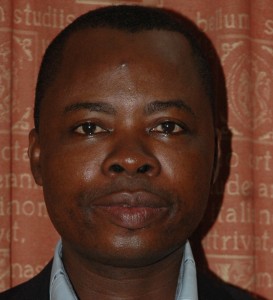Business management in Africa: the missing link
By Daniel D. Dossou

While the shortage of professional managers is considered the biggest impediment to economic performance in Africa, thousands of Africans are eagerly “marketing” their managerial “know how” elsewhere. A real paradox!
This situation raises a couple of questions: what management and business skills should African decision-makers seek to acquire, and where to find the missing link? In the prevalent context of intercultural management, how can African leaders and scholars benchmark and integrate in school curricula what their students and practicing managers effectively need?
To properly address these issues, I believe African decision-makers need what one would call a “shift of paradigm.” For that necessary refocusing, I suggest a management dynamics that might sound like a Confucian or Kong Fu Ze recommendation: All African managers and workers should strive to further their education, to work wiser, and not spend more than necessary. Leaders should always treat others the way they would like to be treated.
Furthering education is what Asian and western managers have been doing, thanks to one of the eight principles of the prevailing system of management of quality. With regard to that, African managers should strive for a continuous improvement process always placing their customers and human resources in the centre of their business practices. That is an organizational development approach with a longer perspective. To that end, African businessmen should methodically fight their legendary shortcoming of the “Now and Here” approach that certainly takes nobody nowhere.
Working wiser, as I suggested, is certainly the encompassing wisdom all African managers must faithfullyembrace. In this emerging context of management, that means working from customers’ viewpoint, organizing companies with systemic and factual approaches; considering the enterprise as a “living body” whose different parts are working together for the same and unique objective. In a traditionally permissive cultural environment, indeed, managing for better performances demands some well-identified processes, more dynamic and realistic objectives and criteria of performance. For that matter, African managers need to enhance their “scientific approach” of decision making, and should nolonger rely too heavily on their ‘uneducated intuition’ and ‘voodoo-oriented advice.’
Where else to look for vital contributions? More than ever, African intellectuals and scholars should take into consideration the sublime purpose of all education: To confer the capacity to cope proactively but effectively with people’s problem of internal and external adaptation. To that end, one should no longer act as if good performance came simply as a result of passing tests in a classroom. More emphasis should be put on productive actions through group effort and cooperation, and on the underlying capacity, at all levels, to always identify and individually acquire newer competencies required for competitive adaptations. Call it renewed ‘African collectivism.’
Furthermore, African leaders and researchers need to better understand the ‘functional link’ and the ‘scientific voodoo spirit’ at work between the business schools and the macroeconomic performance of any nation. The organisation and the process by which managerial thoughts and business practices evolved elsewhere are still not in place in most African countries, so let’s get the missing link by learning from others as others have learned from us.
Daniel D. Dossou is a business consultant and the author of Le Management de l’Ethique et de la Responsabilité Sociale des Entreprises: Problématique Sociétale et Culturelle (the Management of Ethics and the Social Responsibility of Businesses: Societal and Cultural Problematic).


